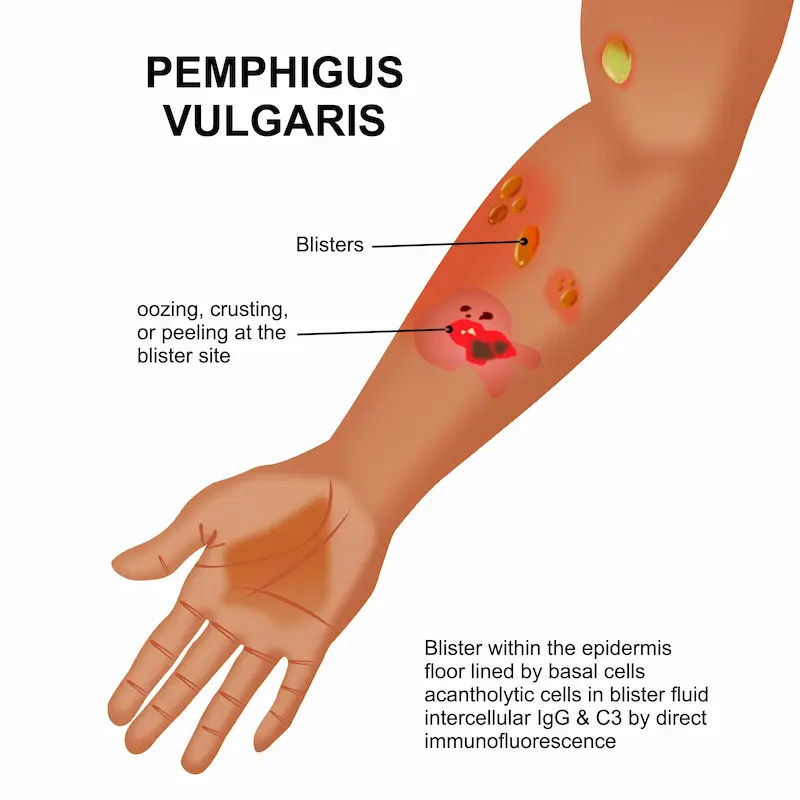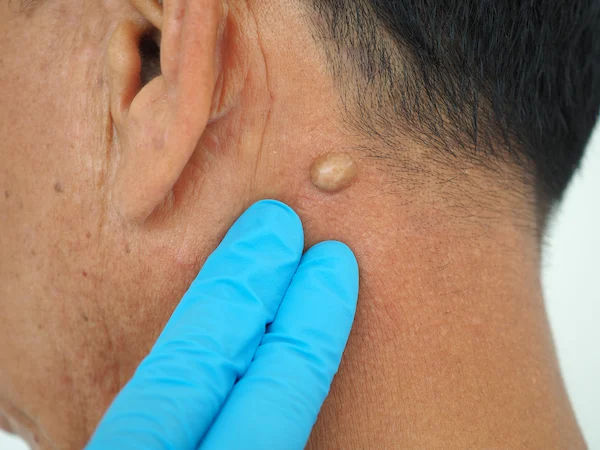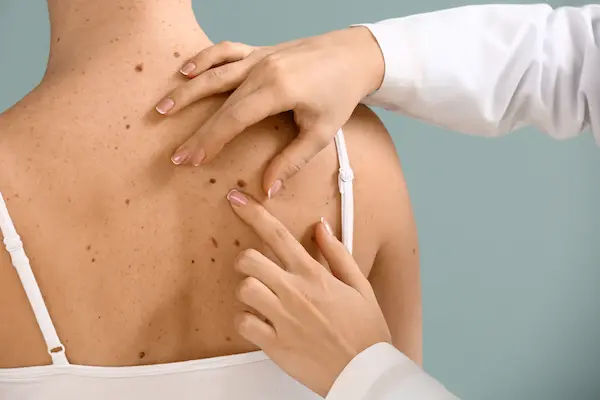- Male
- 19 Years
- 22/01/2025
I've noticed this dark patch appearing on my temple, right between my forehead and nose. The skin texture feels normal, not rough or anything, but it looks like it's just more tanned than the rest of my face. I'm pretty sure it's not actually a tan. What can I do to make it go away?
Answered by 1 Apollo Doctors
This black patch could be a condition called melasma, which is a common skin problem causing dark, discolored patches on the skin. To help fade the black patch, you can use a cream containing hydroquinone, tretinoin, and a corticosteroid. An example of such a cream is Tri-Luma, which should be applied once daily in the evening. Additionally, using a broad-spectrum sunscreen with SPF 30 or higher daily can help prevent further darkening of the skin. Remember to consult with a dermatologist for a proper diagnosis and treatment plan.
Dr. Chandra Suggests...
Consult a Dermatologist
Answered 04/07/2025
0
0

More Dermatology Health Queries
View allI'm really concerned about the pigmentation on my lips. I've been thinking a lot about ways to reduce it but I'm not sure what my options are. Can you tell me more about the treatments available, how much they typically cost, and how long it might take before I notice any changes? Also, are there any creams specifically for dark lips that you would recommend?
Reducing lip pigmentation can be achieved through various treatments. Here are some options: - Laser Treatment: This is a precise and effective solution for achieving even-toned lips. Laser treatment targets pigmented cells, promoting a balanced and natural lip color with minimal downtime. The cost of treatment in Pune varies from INR 4,000 to 6,000 per session. - Chemical Peels: This treatment involves the application of a chemical solution to the lips to eliminate the top layer of skin and expose lighter skin underneath. - Microdermabrasion: This method utilizes a specialized tool to delicately remove the outer layer of skin, unveiling a brighter and smoother complexion beneath. - Topical Creams: Certain creams containing lightening agents like hydroquinone or kojic acid can help reduce lip pigmentation.
Answered by 1 Apollo Doctors
I've been on isotroin for a few months now, like about three months, and I was wondering if it's safe for me to take paracetamol at the same time? Is there anything I should be worried about?
Yes paracetamol can be taken safely with tablet isotretinoin.
Answered by 1 Apollo Doctors
I'm noticing that my hairline is starting to recede at the temples on both sides of my forehead. Is there any way to regrow hair in this area, especially since it's still early on?
Visit Physician for evaluation and appropriate management
Answered by 1 Apollo Doctors
Disclaimer: Answers on Apollo 247 are not intended to replace your doctor advice. Always seek help of a professional doctor in case of an medical emergency or ailment.



.webp)

